- News
- Reviews
- Bikes
- Accessories
- Accessories - misc
- Computer mounts
- Bags
- Bar ends
- Bike bags & cases
- Bottle cages
- Bottles
- Cameras
- Car racks
- Child seats
- Computers
- Glasses
- GPS units
- Helmets
- Lights - front
- Lights - rear
- Lights - sets
- Locks
- Mirrors
- Mudguards
- Racks
- Pumps & CO2 inflators
- Puncture kits
- Reflectives
- Smart watches
- Stands and racks
- Trailers
- Clothing
- Components
- Bar tape & grips
- Bottom brackets
- Brake & gear cables
- Brake & STI levers
- Brake pads & spares
- Brakes
- Cassettes & freewheels
- Chains
- Chainsets & chainrings
- Derailleurs - front
- Derailleurs - rear
- Forks
- Gear levers & shifters
- Groupsets
- Handlebars & extensions
- Headsets
- Hubs
- Inner tubes
- Pedals
- Quick releases & skewers
- Saddles
- Seatposts
- Stems
- Wheels
- Tyres
- Health, fitness and nutrition
- Tools and workshop
- Miscellaneous
- Tubeless valves
- Buyers Guides
- Features
- Forum
- Recommends
- Podcast
news
“Not one single helmet…”: Motorists slam cycling “people carrier” image as “needlessly putting your family in danger”; “Why is the right at war with cyclists?” asks Guardian columnist – as GB News launches latest anti-cycling poll + more on the live blog
SUMMARY
No Live Blog item found.
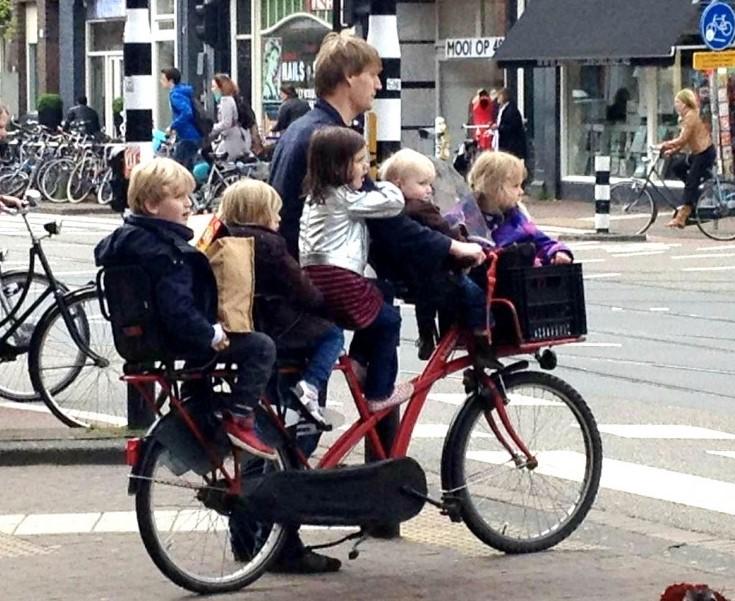 Dutch cycling 'people carrier' (Jon Burke)
Dutch cycling 'people carrier' (Jon Burke)26 March 2024, 09:04

“Not one single helmet…”: Motorists slam “deathtrap” cycling ‘people carrier’ image as “needlessly putting your family in danger”
I know it’s not something that often needs proving, but one quick and easy way to gauge the extent to which the Netherlands’ cycling culture is much more advanced than the UK’s is to post a photo on Twitter of an everyday Dutch cyclist and their family going about their business… and sit back and enjoy (or gaze in horror) at the replies.
Well, for some reason, that’s exactly what former Hackney councillor and transport chief Jon Burke did yesterday:
Please enjoy this People Carrier…😍 pic.twitter.com/CXcB5pfvF7
— Jon Burke 🌍 (@jonburkeUK) March 25, 2024
And the response?
“Needlessly putting your family in danger,” wrote on blue-ticked Twitter user.
“Clearly not safe,” said another.
“No helmets too, how safe.”
“Looks very dangerous.”
“No helmets on the kids, an f-ing disgrace.”
“Five kids, no helmets. That person should be arrested.”
“Deathtrap.”
“Imagine going out with a bloke like this. Wet flannel comes to mind,” UKIP WAG Jo Marney helpfully added.
And finally… “No helmets and instant death if hit by anything. I’ll stick with my extremely safe SUV thanks. Which also works in the rain…”
Gammon baiting par excellence pic.twitter.com/7OL5H8JBCg
— Real Gaz on a proper bike: gazza_d [at] toot.bike (@gazza_d) March 25, 2024
Of course, away from ‘super safe’ SUV-land, others longed for a world (or country) in which that kind of photo is viewed as normal.
“Beautiful photo in a proper city,” wrote American Fietser. “Having said that, my condolences on your comment section from all the nitwit reply-guys.”
Same.
“By reading the comments I get that not many knows how cycling works in the Netherlands,” added Xorin. “This picture is not something out of the ordinary there, is the norm.”
“All cities should be safe to ride like this,” wrote CGrift.
“Meanwhile I’m dressed in high vis with flashing lights, hoping to make it home every day to my family.”
26 March 2024, 10:55
“Were you in a velodrome?” Motorist widely scorned for claiming that “almost all” cyclists in the Netherlands wear helmets
I was in the Netherlands last fall, the number of bicycles astounded me. But one thing I did notice is that almost all of them, including every child I saw, were wearing a helmet.
— Steve (@PatheticPutter) March 25, 2024
Oh, Steve.
It’s one thing to argue – like Twitter user Steve did on this morning’s live blog story – that our Dutch ‘cycling people carrier friend’ should be arrested for failing to put helmets on his five children, it’s another thing entirely to make a claim that even someone with only a passing knowledge of the Netherlands’ cycling culture would know is demonstrably, and ludicrously, false.
After Glasgow Fietser responded to Steve that he would be forced to “arrest almost the entire population of the Netherlands” for failing to wear a helmet, our determined, and seemingly reality challenged, social media user replied:
I was in the Netherlands last fall, the number of bicycles astounded me. But one thing I did notice is that almost all of them, including every child I saw, were wearing a helmet.
Hmmm…
Unsurprisingly, that head scratching claim earned Steve an always fun context note under his tweet, alerting readers that “87 per cent of cyclists in the Netherlands do not wear a helmet”.
Along with quite a few hilarious retorts from baffled cyclists...
“Were you in a velodrome? We’ve cycled around major parts if the Netherlands and only racing cyclists wear helmets,” wrote Jon.
Nah, you’ve made that up. Why lie?https://t.co/BOh3E4nmHT
— Jon Burke 🌍 (@jonburkeUK) March 25, 2024
“I live in the Netherlands and can honestly say that nobody wears a helmet, except racing cyclists and maybe some toddlers that are learning,” added Aernout. “I personally and none of my friends have ever worn one.”
(Rather brilliantly, stubborn Steve replied to Aernout with “I saw what I saw”.)
“I have toured by cycle in the Netherlands for 60 years and the only time I’ve seen helmets worn was in road races and a group of tourists getting off the Schoonhoven ferry once,” said Bill.
I don’t think so, I go there most months and I have yet to see anyone, other than serious cyclists riding at pace, with a helmet on. For example the chap riding this rocked up in jeans, tee shirt and flip flops for a few beers with his friends. pic.twitter.com/uMmOwC5Gd4
— Jonathan Roberts🇺🇦🌻🚴♂️ (@jono_pce) March 26, 2024
“Steve, that’s amazing. How did all the helmet-wearing cycling people in the whole of Nederland happen to follow you around on your trip?” asked Tim. “Most visitors to NL note the absence of helmet wearing, so it’s quite astounding that you experienced the very opposite.”
Better luck next time Steve…
26 March 2024, 16:52

More bad luck for Visma-Lease a Bike as Dylan van Baarle set to miss Dwars door Vlaanderen due to illness
The bad luck keeps piling up for Wout van Aert ahead of the Tour of Flanders and Paris-Roubaix, after key Visma-Lease a Bike teammate Dylan van Baarle was ruled out of tomorrow’s Dwars door Vlaanderen – the final warm up race before De Ronde on Sunday – with illness.
Van Baarle is the latest rider added to Visma’s increasingly long classics injury and illness list, with Christophe Laporte facing a race against time to be fit for Paris-Roubaix due to a saddle sore, Tiesj Benoot injuring his ribs during the E3 Saxo Classic, Jan Tratnik crashing at Gent-Wevelgem, and Per Strand Hagenes breaking his nose in a crash at E3.
Van Aert, meanwhile, will be hoping his bad luck is confined to his untimely crash on the Paterberg at E3, which ripped up fans’ pre-race hopes of a head-to-head duel with perennial rival Mathieu van der Poel.
And with Van der Poel and Gent-Wevelgem winner Mads Pedersen in stunning form, Van Aert certainly can’t afford any more misfortune, to say the least.
26 March 2024, 09:54
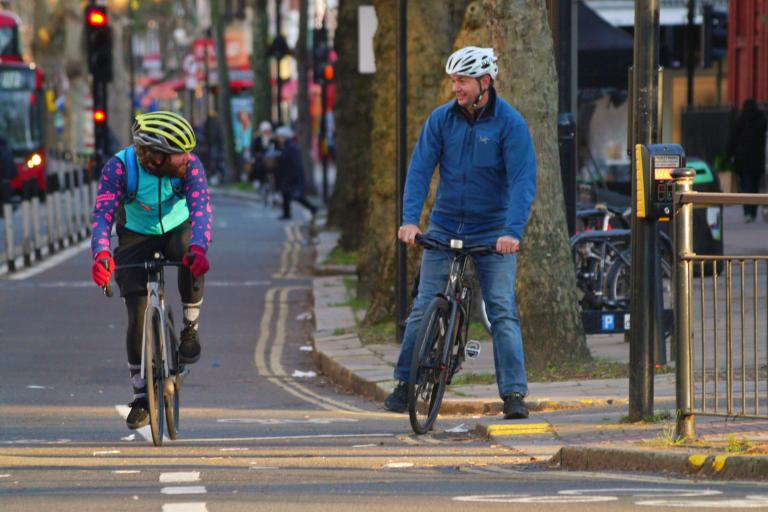
“Why is the right at war with cyclists?” asks Guardian columnist – as GB News launches latest anti-cycling poll
Ah, brilliant, more online cycling culture war discourse, just what we all need on a sodden March Tuesday…
Well, as we all digest the somewhat baffling replies to an image of a Dutch cyclist nonchalantly going about his business, the very nature of the anti-cycling agenda has been taken to task in the Guardian by columnist Zoe Williams.
In a rather refreshing national newspaper column focusing on cycling, pointedly titled “Why is the right at war with cyclists? We’re not ‘wokerati’ – we’re just trying to get around”, Williams points out that cycling is far from a “political act” perpetrated by a coherent and unified ideological group, despite the remonstrations of the likes of Farage, Barton, and the anti-LTN and ULEZ crowd.
Instead, Williams notes, “anti-cyclists are easy to categorise: they find the concept of the do-gooder infuriating and the idea of minding their own business untenable”.
“Cyclists, on the other hand, are impossible to categorise; you might just as well try to build a theory of mind for pedestrians,” she writes. “It’s not a political act; it’s fun.
“So, the polarisation is asymmetric. While one side is building an anti-green, anti-woke, anti-liberal architecture around transport initiatives, the other side doesn’t even cohere.
“Yet, this picture is turned on its head for the purposes of the ‘debate’, wherever it takes place, so that cyclists are the warriors, the lunatic fringe, the people who are coming for your way of life. In truth, I am medium-sure that most of us are just ambling about, wondering whether or not to invest in waterproof shoe covers.”
“Should we be paying more attention?” Williams concluded by asking. “Is there a lesson here about the concept of the wokerati, illustrating that it doesn’t exist, except in the imagination of the right, and that maybe the self-styled centrists of our wider culture should push back a bit harder, rather than getting popcorn and enjoying the show?
“I think so, yes. But what do I know? I am a bloody cyclist.”
Brilliant. And nice to see a positive spin on cycling within the context of the so-called culture wars in a newspaper for a change.
Meanwhile, as if to prove Williams’ point, GB News’ poll of the day yesterday asked its members: “Are cyclists making Britain’s roads a nightmare?”
Unfortunately (or fortunately, depending on your personal stance), you have to be a GB News member to find out the results of that particular, extremely balanced, survey. But I’m sure another one will come along sometime next week…
26 March 2024, 16:30
“The usual paint is not infrastructure planned by someone who has never ridden a bike”
26 March 2024, 15:47
Meanwhile, in Paris…
Paris saw bicycle usage double in the last 4 years. This follows a decade of investments in a safe, comfortable, cycling network & the announcement of an additional 180km of cycle paths & 130,000 bike parking spaces by 2026.
📍 Paris 🇫🇷
🎥 @EmmanuelSPV
pic.twitter.com/qd2x4xEKAj— Jonathan Berk (@berkie1) March 25, 2024
26 March 2024, 14:54
“The first duty of a local council is community safety”: Locals call for council to make roads safer after cyclist killed in collision with lorry driver
A silent vigil was held today in Bearsden, East Dunbartonshire, in memory of Una Brandreth, a cyclist killed in a collision with a lorry driver last week, as residents called on the local authority to make the roads safer for vulnerable road users, branding its failure to do so a “dereliction of duty”.
56-year-old mum Brandreth was riding her bike on Manse Road at around 8.10am last Tuesday when she was struck by a lorry driver, killing her.
“In the span of ten days there have been three serious traffic accidents in Bearsden involving pedestrians or cyclists being knocked down,” Angela Bellmooney, a Bearsden local who has launched a petition urging East Dunbartonshire Council to introduce increased safety measures in the wake of Una’s death, told Glasgow Live.
“On Boxing Day 2019, a family of six were mowed down on Manse Road with one person being killed. There will have no doubt been many more near misses.”
Bellmooney says that the one piece of safety infrastructure on Manse Road, a flashing warning sign instructing motorists that they are driving too fast, is covered by hedges and has not worked for two years.
She also stated that “mangled barriers” at nearby Bearsden Cross were “another reminder of dangerous driving and poor traffic management”.
“The first duty of a local council is community safety,” she says. “Parents and residents have repeatedly called on the council to take action but to date the response has been dismissive and inadequate.
“We pay our council taxes expecting better than this for our community but at the moment, our council’s inaction is simply a dereliction of duty.
“We urge East Dunbartonshire Council to take action and fully commit to making our streets and roads safer.”
26 March 2024, 14:26
The joys of painted, narrow contraflow cycle lanes
Having to get the attention of a driver on their phone so they don’t drive into me on the new King’s Road one-way system outside Richmond Park. Absolutely zero awareness.
This is not safe cycling infrastructure.@KingstonCycling pic.twitter.com/bi7eNtFOx5
— Ollie (@ohbee07) March 20, 2024
26 March 2024, 14:15
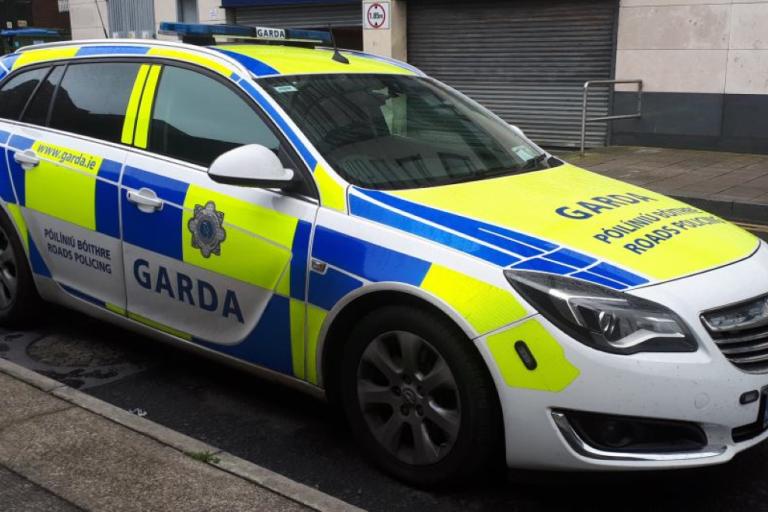
Cleared Irish police officer suspended for giving unclaimed bike to pensioner set to sue Garda for damages
An Irish police officer who was suspended for three years, and later cleared of wrongdoing, for giving an unclaimed €50 bike to a pensioner is intending to sue An Garda Síochána for damages, according to the Irish Independent.
The Independent also reports that Assistant Garda Commissioner Jonathan Roberts is currently studying a 1,000 page transcript from the recent disciplinary inquiry which eventually cleared the officer of wrongdoing, in a bid to ascertain the extent to which some members of police management changed their testimony during the investigation.
As we reported earlier this month, the unnamed Garda was cleared of five disciplinary charges, which led to a three-year suspension, at an inquiry after giving one of many unclaimed bicycles at his police station to a “vulnerable and isolated” elderly man who was struggling for transport during the Covid pandemic.
The unnamed garda faced a number of possible sanctions including reprimand, a fine, a caution, or even dismissal from the force, but received “significant support” from his colleagues, with his suspension pending investigation arising as he had not completed the necessary paperwork having given the bike to an “isolated” resident living in a rural area as a means of travelling to the shops during the pandemic.
Welcoming the decision, Garda Representative Association (GRA) General Secretary Ronan Slevin said the case had seen “good, decent community policing blown apart and relationships destroyed”.
“In essence I believe a sledgehammer of discipline was used to crack a nut and the reputation of a long serving member was damaged, his honesty questioned, and his livelihood threatened,” Slevin said.
26 March 2024, 13:25
The fastest bike on earth for the fastest rider?
26 March 2024, 12:51
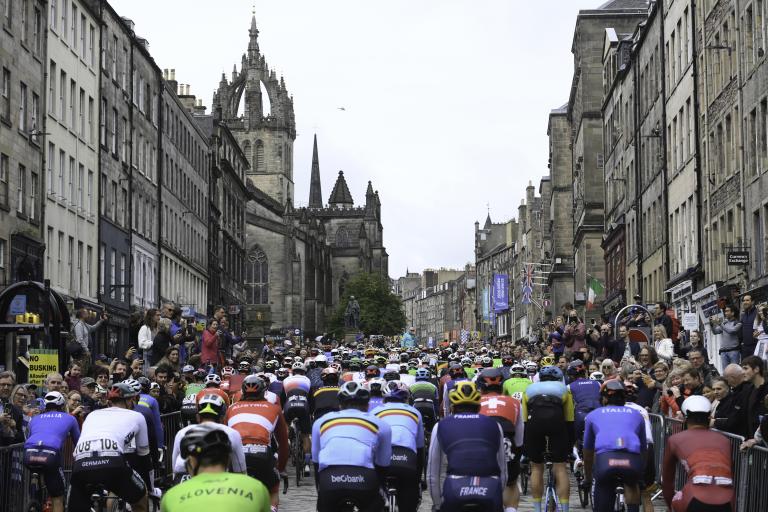
“Quite astounding” that cycling and walking contribute over £260 million to Edinburgh economy, former SNP House of Commons leader says
While in London certain politicians are dismissing active travel plans as “ridiculous virtue signalling”, up in Auld Reekie, one SNP MSP has praised the positive impact cycling and walking makes on the economy and the environment, as well as on the health of his constituents.
Describing Sustrans’ recent findings that active travel generates almost £263 million for Edinburgh and its surrounding regions as “quite astounding”, Edinburgh Central MSP, and former SNP House of Commons leader, Angus Robertson also noted that “1,314 serious long-term health conditions are prevented thanks to the health benefits of walking and cycling”.
Writing in the Edinburgh Evening News, Robertson praised Edinburgh City Council’s Net Zero targets for 2030, pointing out that 160,000 cars have been taken off the road every day by people instead choosing to travel by bike or on foot.
“I fully support these efforts, which align with the legacy commitments of the Scottish Government following the UCI Cycling World Championships in Glasgow, which also added £205m to the Scottish economy,” Robertson said.
“Indeed, through the Scottish Government’s million-pound Community Cycling Fund, we are already supporting sustainable cycling projects and local events to ensure as many communities across Scotland get involved.”
26 March 2024, 12:21
“I am pro cycling, but equally we must look at everybody else that uses the streets. And this war on the motorists must stop”
The Conservative Party’s London mayoral candidate Susan Hall – you know, from the backlash to the five-year-old cyclist almost being clipped by a driver video – has (shock) committed to reviewing cycling infrastructure if elected, and lashed out at cycle lanes that she claims are “virtue signalling” and cause “havoc” and gridlock for motorists.
Having launched her campaign in a cafe in Uxbridge on Sunday, Hall has again set her stall out as the candidate to end the so-called “war on motorists”, and despite claiming she is “pro any form of transport” questioned why “damn ridiculous” cycle lanes had been built when “we must remember there’s only two to three per cent of the population that are cyclists”.
Read more: > Conservative London mayoral candidate claims “virtue signalling” cycle lanes are causing “gridlock” and “havoc”, would review cycling infrastructure if elected to end “war on motorists”
26 March 2024, 11:56
Be afraid, be very afraid: Tadej Pogačar heads to altitude to prepare for Liège-Bastogne-Liège and Giro d’Italia
After completely decimating the field at the Volta a Catalunya last week, winning four of the race’s seven stages and beating second-placed Mikel Landa by almost four minutes, Tadej Pogačar is ready to knuckle down for some hard altitude training in Sierra Nevada, in a bid to boost the already ludicrous form he’s shown in 2024.
Even by his extremely lofty standards, this season has been a jaw-dropping one so far for the UAE Team Emirates leader.
Kicking off the season with that 80km solo raid for the history books at Strade Bianche, Pogačar then put on a typically attacking ride at Milan-Sanremo – foiled somewhat by his team’s poor positioning at the foot of the Poggio – before nabbing third in the sprint.
His week in Catalunya, meanwhile, was utterly devastating, turning the Volta’s tough mountain stages into glorified training rides and even bagging that iconic final stage in Barcelona in the sprint (while sparking a wave of social media debates on whether such domination is boring for fans).
Of the nine race days he’s started in 2024, the Slovenian’s results have been: 1, 3, 2, 1, 1, 25, 31, 1, 1 (and you can throw in the Volta’s GC and points and mountains classifications too).
And now, rather frighteningly for his rivals, Pogačar is belatedly joining the altitude party – one already attended by Jonas Vingegaard, Remco Evenepoel, and Primož Roglič this season – for some intensive training high in the mountains ahead of his next big goals: a bid to regain his crown at Liège-Bastogne-Liège and a first ever crack at the Giro d’Italia, the first phase of his Giro-Tour double attempt.
“I’m going to Sierra Nevada today. I stay there for almost three weeks, and then to Belgium, one week of a little rest, and then after, the preparations for Liège-Bastogne-Liège and the last preparations for the Giro d’Italia itself,” the 25-year-old told RTV SLO.
“This start to the season and the performance shows that I am in great shape and on track for the Giro-Tour. I already confirmed my good form at Strade Bianche and Sanremo, but this was a very different course [in Catalunya]. Lots of climbs and descents. The whole week was extraordinary, not only for me but for the whole team.
“I’m in better shape, at least when it comes to feeling good on the bike. I’ve taken another step forward to enjoy my bike even more, and I go out every day with a smile on my face. I don't mind doing intervals. It’s not all about the numbers, it’s also about feeling really good.”
Be afraid, be very afraid…
26 March 2024, 11:27
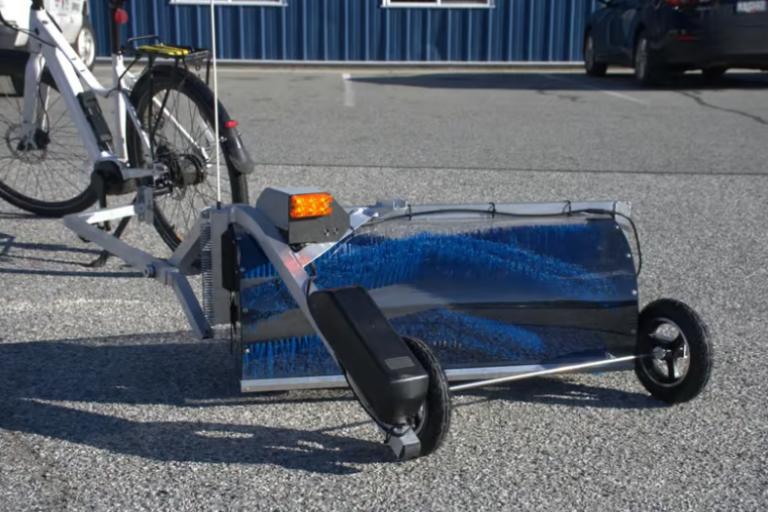
Are dirt and debris-filled cycle lanes set to become a thing of the past? Motorised Bike Lane Sweeper trialled in US and Canada
Here on the live blog, I’ve lost count of the number of times we’ve featured cycle lanes – often located right beside pristine roads – filled with branches, dirt, and debris (oh, and plenty of potholes and parked cars too), as part of our ongoing, never-ending series, ‘Why don’t cyclists use the cycle lanes?’
But one of the many reasons used for the often depressing state of protected bike lanes – that sweeper vehicles are too wide to clear them properly – may soon be a thing of the past, in the US and Canada at least, after cyclists Pierre Lermant and Cedric Eveleigh worked together to create the Bike Lane Sweeper, a device towed by a bike sweeping up and collecting debris.
“Although we are lucky in the Bay Area, and many streets/roads have bike lanes, they tend to accumulate debris pushed to the side by the main car/truck traffic, making them unpleasant to ride and puncture-prone,” California-based co-creator Lermant told New Atlas.
“I thought to myself one day during Covid, ‘Wouldn’t it be nice if we could come up with a sweeper attached to a bicycle to clear the bike lanes’, and the project was born, about three years ago.”
After building a prototype, Lermant was soon contacted by Canadian mechanical engineer and mountain bike drivetrain expert Cedric Eveleigh, who had recently joined a local group sweeping up bike lanes in protest at the lack of government interest in keeping cycling infrastructure clear.
“It was at these events that I started thinking about the idea of a bike lane sweeper, with a powered brush, pulled by bike,” Eveleigh says.
“I then Googled the idea and discovered Pierre, who had built proof-of-concept bike lane sweepers. I contacted him to offer help with engineering and manufacturing, and Pierre was keen to work together.”
The pair have since developed two versions of the e-bike battery-powered sweeper, one which sweeps debris off to the side and is intended for rural use, and a more urban-focused machine which collects rubbish in a bin.
The motor is wirelessly activated by a handlebar-mounted remote, while both sweepers feature a standard trailer hitch compatible with almost every bike. They are currently being tested by cycling campaign groups across the US and Canada at the moment.
“There are several possible business models that we’re exploring, including selling bike lane sweepers to non-profit volunteer-based groups (there have been three successful crowdfunding campaigns), selling them to municipalities, and offering sweeping as a service,” Eveleigh says.
“Debris often forces cyclists into car traffic, causes flat tires, or is simply unpleasant. This bike lane sweeper project was born out of a desire to remove debris from bike lanes to make cycling safe and enjoyable, getting more folks to ride bikes.”
Unfortunately, I’m not sure how well it would cope with parked cars blocking the bike lane…
26 March 2024, 10:30
Back in Black (and Orange): Wiggle returns… and so does the old orange logo
After their brief holding page hiatus last week, Wiggle and Chain Reaction Cycles’ websites are back open for business this morning – and it turns out that Frasers wasn’t too impressed with Wiggle’s controversial green rebrand last year either…
> Wiggle website relaunched following Frasers Group takeover (and the old orange logo is back)
26 March 2024, 09:30
“They weren’t able to find my address, but they found my bank account very quickly to block €400”
After obtaining a PhD, lecturing, and hosting a history podcast at Queen’s University Belfast, Ryan joined road.cc in December 2021 and since then has kept the site’s readers and listeners informed and enthralled (well at least occasionally) on news, the live blog, and the road.cc Podcast. After boarding a wrong bus at the world championships and ruining a good pair of jeans at the cyclocross, he now serves as road.cc’s senior news writer. Before his foray into cycling journalism, he wallowed in the equally pitiless world of academia, where he wrote a book about Victorian politics and droned on about cycling and bikes to classes of bored students (while taking every chance he could get to talk about cycling in print or on the radio). He can be found riding his bike very slowly around the narrow, scenic country lanes of Co. Down.
Latest Comments
- Smoggysteve 7 min 2 sec ago
not sure why you're telling me this. I know how it works. ...
- GMBasix 10 min 47 sec ago
Driving at 20mph in a 30mph limit is not a traffic jam.
- Secret_squirrel 11 min 11 sec ago
I have no problem with this article being ad-like - they seem like excellent Lawyers at securing settlements from neglidet parties including a...
- stonojnr 19 min 14 sec ago
But then we couldn't claim no one paid any attention to the highway code changes....
- Secret_squirrel 22 min 37 sec ago
Or - alternatively explore options which nobble all SUV usage rather than a clickbait analysis, thats unique to 1 particular area because bashing...
- fourohfour 30 min 1 sec ago
This is a company that makes a degreaser called Agent Apple, a pun on Agent Orange, the defoliant used by the US in Vietnam, Laos and Cambodia and...
- james-o 33 min 33 sec ago
"There are precisely zero listed in design & development, which might explain why they haven't really done anything innovative for decades."...
- S.E. 1 hour 2 min ago
I'm curious how long did it last, I doubt the battery survived all these years?...
- David9694 1 hour 51 min ago
Gridlock across Canterbury as multiple roadworks to take place across city...
- Rendel Harris 2 hours 57 sec ago
Obvious I suppose but worth saying for newcomers: if you want to try out shoes without too much outlay have a look around the sales, there are some...
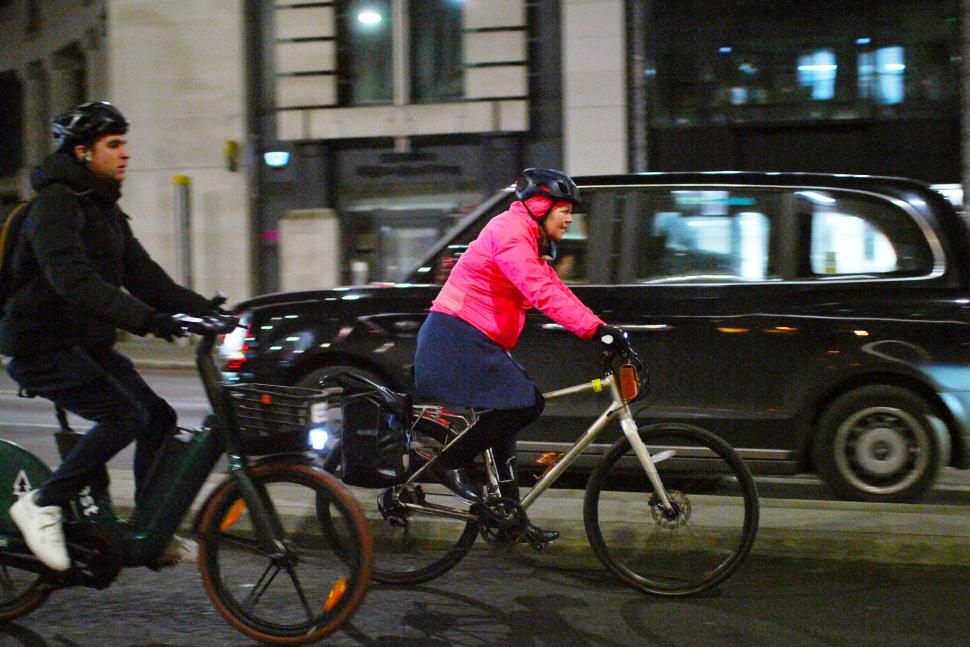

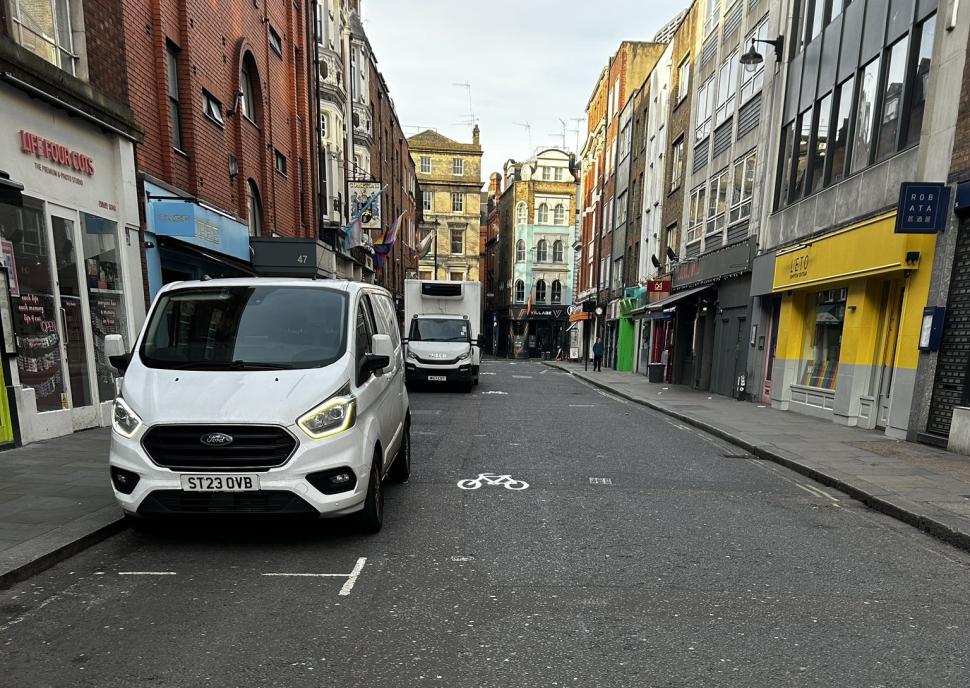

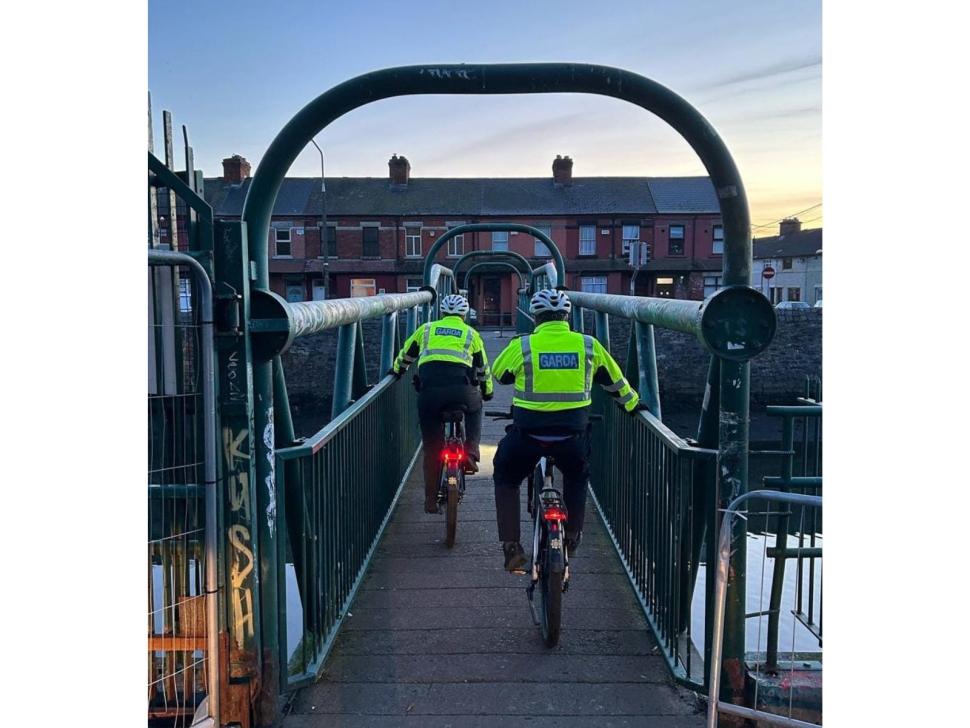

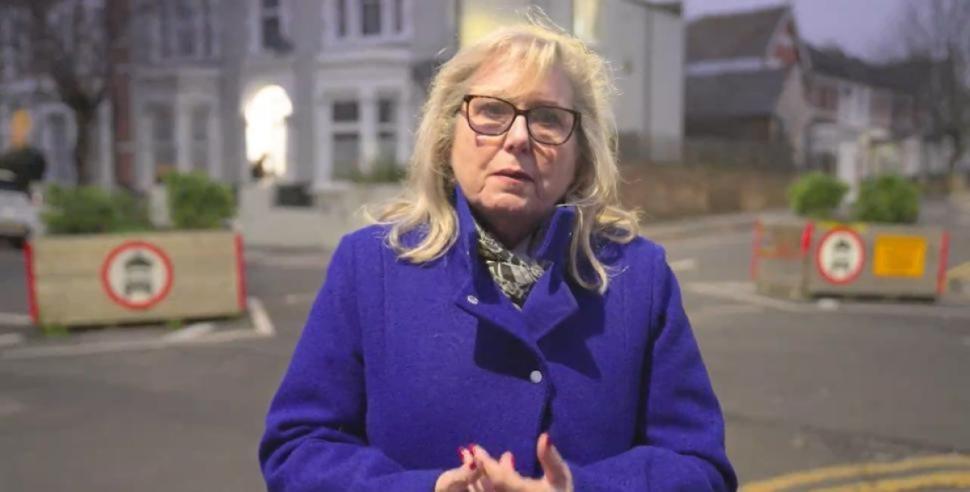
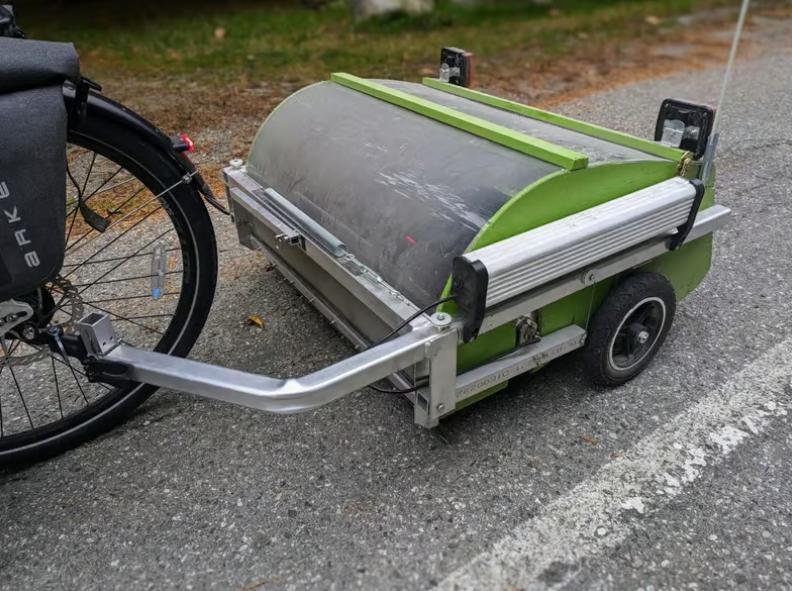

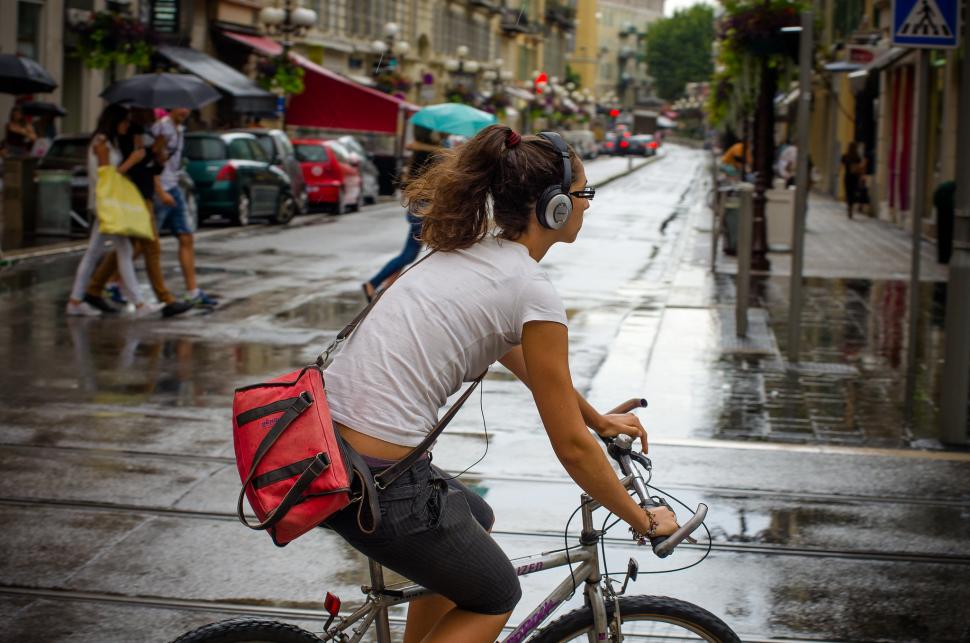
Add new comment
48 comments
Technically Japan requires cycle registration.
But there is no penalty for being caught not registering a bicycle.
Its just AFAIK if it ends up in police custody (e.g. stolen and recovered) without being registered the police dispose of it immediately rather than trying to return it.
... and Japan, though I understand that is more to do with discouraging theft.
Why is the right at war with cyclists?
Because, like most things the right gets angry about, they know they are in the wrong, they just don't want to admit it to themselves. Someone showing there is an alternative to what they do makes them uncomfortable and instead of challenging their own position, they challenge others.
The right aren't all idiots, most of them know climate change is real and caused by the actions of humans and that driving is a bad thing for the future, they don't want to admit that and change their ways though so they justify it to themselves as "I need to drive" so seeing people prove that need wrong makes them angry.
Pretty sure you could swap "the right" there with "anyone". You'll find some on the left shouty about cars too because of course "the rich / higher classes want to stop us driving (and reserve those rights to themselves)!"
(That actually goes for most shades of politics as it's the human sensitivity to unfairness - witness "but Rishi Sunak has a motorcade / flies around by helicopter / but our family can't afford a second car / ebikes, unlike ...").
In fact very few people enjoy change! The percentage drops as people leave their teens / 20s - and statistically most of us are older. Externally "imposed" change (often in ways we consider at best uninformed and often malevolent)? Get to ...
I'm not sure it's coming from "they're showing that I'm wrong". I'm not even as certain as you that most people are convinced this kind of change is needed at all. Or at least that they have much responsibility / can have any meaningful effect. You do hear things like "don't they have anything better to do? I'm just busy trying to live my life". Humans don't last forever after all - and we've "been fine so far" (mostly, in the UK)...
Additionally some who have considered this are concerned about the further consequences of change, even if they're not well-informed / we feel they're way off in their projections of what may happen.
I do have that feeling though - at first guess if there's a bias it's because "conservative" with a small "c" and a shift in mode use would be "change" (ignoring all those other changes ushered in by Conservative politicians).
I think "cycle-bashing" is essentially an equal-opportunity political football - every party knows that not many people have particularly positive feelings here and most at best don't care much. Meanwhile you can play to a small subset who are anti. However LOTS of people will listen if you say "fewer parking spaces! Speed limits! More congestion!"
There could perhaps be slight differences in transport mode between party supporters? I'd be far from certain of that though.
Are you sure it's not the mirror image of "woke" with us wokerati - anything we disagree with is "right wing"?
Cycle bashing is equal political opportunity, I've heard elected Labour councillors describe cycling, and cycling infra, as a green scourge & blob, that disrupts working motorists from getting where they need to be, their answer for congestion is simply build more roads.
Equally the council spending 5million on cycle infra down the road from me is Tory run.
But stuff like that doesn't sell newspapers or drive clicks on websites does it.
https://www.bbc.co.uk/news/uk-england-surrey-68633010
This anti-motorist rhetoric from Rishi&co entitles/enables not just hatred towards cyclists, but literally anyone in their way.
(Link is to road-workers being threatened with weapons)
(Incidentally, we had a lovely chat with a road contractor on Sunday, who then volunteered to move some Heras fencing to allow us to walk our bikes past more easily on a semi-closed road.)
Not if local authority budgets and current attitudes toward cycling infrastructure prevail.
There's nothing inherently dangerous about cycling, and even less so when you're pushing a bicycle. Nobody, except tourists riding road bikes (one of which I'd happily be), wears a helmet in the Netherlands.
I just read the Zoe Williams article, and many of the comments ticked the anti cycling bingo boxes, some many times. It's very frustrating to know that when I'm just trying to go about my day in an easy and quick way so many people are sitting in their cars just fuming at the fact that I'm even there at all.
"Nobody, except tourists riding road bikes" is not remotely true. As a resident of NL for the last 8 years, I can say that pretty much every "sports" cyclist (road/gravel/MTB/beach [yes, beach]) wears a helmet. Irrespective of place of birth/nationality.
Furthermore, an increasing number of elderly e-bikers wear a helmet, which is maybe sensible as I believe they are the fastest growing group of those injured whilst cycling in NL.
You also get the occasional expat wearing a helmet.
One statistic filed away in my long term memory is that wearing a helmet in the netherlands makes you more likely to be in involved in an "accident".
The explanation as you have pointed out is that only the sporting brigade wear them.
Even an enlightened newspaper like The Guardian has its fair share of dickheads in the comments. As you say, the usual bullshit about number plates and lycra.
To be fair, the anti-cycling comments are in the minority and there is plenty of heavily upvoted pushback against them
There's nothing inherently dangerous about cycling - as long as you don't crash, lose control, or otherwise find a way to make the bike go from an upright position to a horizontal one.
It reminds me of the time my parents took us to Disneyland and my Mum decided to hire a bike with a childs seat on the back. She took it for a test ride with a stuffed Mickey Mouse toy in the back and immediately crashed into something and fell over. She was fine bar a minor graze, the Mickey didn't seem to suffer any serious head injuries, but if it had been my 3 year old brother in there instead without a helmet then who knows.
So wait - your mum tried what sounds like a new activity to her (or at the very least with some unfamiliar equipment) where she was clearly so doubtful of her abilities she did a special test first? Sensible her - but perhaps she should have trusted her instincts and not even risked mounting the bike herself?
... but what does this have to do with people who regularly ride bikes again?
As it happens if you review the data from a place which actually has lots of cycling there is a different crash and injury profile between e.g. cycling and walking and I believe there are slightly elevated numbers for the former *. (Essentially falls are a bit worse as it's harder to protect yourself.) That of course doesn't take into account the overall health picture - so what happens if all those journeys were not cycled? There would likely be a direct impact on health (less exercise). Presumably at least some of those journeys would then be driven - and given driving is such a space-inefficient mode / tends to suppress other modes there would be all kinds of negatives from that.
(A different suggestion is to add more pressure for Dutch cyclists to use PPE. That is more debatable but there seems to be some agreement that there is a negative effect on take-up of cycling if people are pushed to use PPE and overall the net effect would be negative for health and likely on the economy.)
* Take-home messages - where you make it safe / convenient enough for all-age mass cycling most incidents will likely be "single-cycle crashes" - but a significant contribution to the deaths / worse injuries is still interaction with motor vehicles (in which the volume of traffic plays a large part). In Dutch, at https://www.veiligheid.nl/kennisaanbod/cijferrapportage/fietsongevallen-en-snor-bromfietsongevallen-nederland
It's important to look at 'sports' cycling and regular, everyday cycling as two seperate things.
That's how I, and almost everyone else here in The Netherlands, see it.
When we go mountain biking, road riding, gravel riding, or even on fast commutes, we wear a helmet. Speeds are relatively high, the routes you take can throw challenging stuff at you, conditions can make it even sketchier, and you could hit a rock or a tree. Ergo; a helmet makes sense.
When we go somewhere by bike (note that no one calls that anything like 'I'm going to cycle', but just 'by bike', as a means of transport), most people don't wear a helmet. Speeds are generally slow, traffic is mostly seperated, cars generally drive reasonably considderate of pedestrians and cyclists. When people fall while going somewhere by bike, they are generally just fine, no serious injuries to speak of (and in case of a collision with a car, helmets are not gonna save you anyway). Ergo; a helmet doesn't make much sense, and it's a nuisance.
That's why 'there's nothing inherently dangerous about EVERYDAY cycling' is a better phrase. It's bad infrastructure and/or bad drivers that make it dangerous.
IIRC aren't there actually different words in Dutch for 'sports cyclist' and 'person on a bike'?
Correct. Wielrenner and fietser.
What KDee says is correct, however, 'fietser' is the generic term ('fiets' is our word for a bicycle, and 'fietser' just means 'he/she who rides a bicycle') and it can be (and sometimes is) used for a person doing any kind of cycling, including road riding, mountain biking etc.
Other terms are more specific, like 'wielrenner' ('wheel runner').
Pages